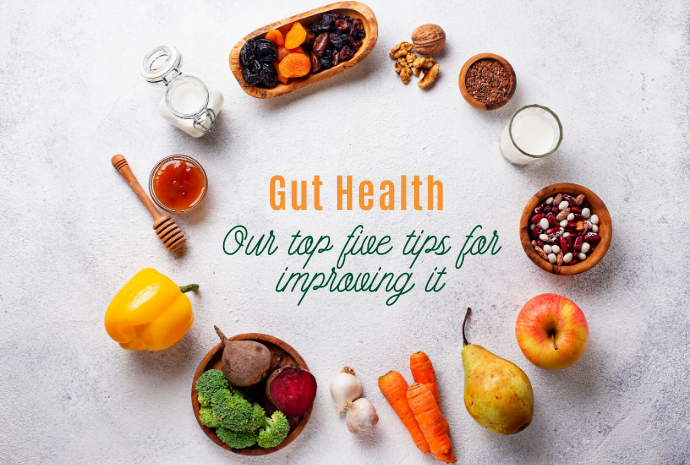Over the years, our digestive system can begin to suffer discomfort that we did not have before. This is because our health depends on the lifestyle habits we have.
That is why it is very important that we take care of both our diet and basic hygiene and health standards to prevent diseases.
We can adopt habits that help digestive care in order to avoid and reduce pathologies that directly affect health.
THE INTESTINAL FUNCTION IS ESSENTIAL FOR GOOD HEALTH AND DISEASE PREVENTION.
The bacteria in our intestines are almost like our fingerprint because it is something. Therefore, it is important to consider the diversity of these microorganisms when preparing a diet. The food you eat provides you with nutrients and feeds the bacteria that live in your body.
SO HOW SHOULD WE EAT TO KEEP OUR GUT HEALTHY?
Everyone is different, but whether you want to improve your digestion, lose weight or just take care of your general health there are some fundamental principles that can be applied to everyone.
THESE ARE SOME OF THE FOODS THAT EXPERTS RECOMMEND
- Vegetables: A healthy gut has a wide variety of microbes, each of which prefers different foods. Artichokes, chicory, lettuce, tarragon, or salsify, as well as leeks, shallots, onions, garlic, and asparagus, are particularly beneficial for the microbiota.
- Fiber: Foods rich in fiber help digestion, although they must be added to the diet gradually. However, most people include less fiber in their diet than they should. Fruits, vegetables, legumes, nuts, and whole grains feed the bacteria in our intestines in a healthy way.
- Probiotics: Probiotic foods, such as yogurt, can encourage the development of some good microbes for our intestines, as they remain active and contribute to the balance of the intestinal flora. In addition, the consumption of prebiotics and probiotics improves intestinal health and prevents inflammation, through improvable changes in the microbiome.
DIGESTION AND WHAT TO DO TO MAKE IT HEALTHY
Good digestion is responsible for providing the energy elements necessary for a healthy life. Digestion problems can trigger diseases that affect our bodies since we are not able to absorb enough nutrients and vitamins to activate our metabolism.
When we talk about digestion, some only think about the process of intake and evacuation of the food we eat daily. It is true that both phases are part of digestion, but there are invisible and very important stages that allow us to obtain what is necessary to live healthily.
When digesting, we are talking about the work that the stomach and intestines do to break down food and obtain from it those components that allow us to acquire and produce energy, water, nutrients, and vitamins.
Having good digestion implies that our body is able to obtain the necessary elements from each meal and at the same time, eliminate the unnecessary.
Properly getting rid of toxins, and acquiring the healthy elements available requires healthy organs and a diet rich in fiber and nutrients. This means that the same foods to be digested can damage our own digestive system.
Over time the digestive organs wear out and lose muscle mass. To prevent the appearance of gastrointestinal diseases that make your body sick, it is necessary to change your diet, water consumption, and physical activity.
SOME TIPS TO PREVENT AGING OF THE DIGESTIVE SYSTEM
- Diet rich in fiber: fruits, vegetables, cereals, and legumes provide a high fiber content to our body. Although fiber is not absorbed by our body, its role lies in transporting water to the large intestine, helping our hydration.
- Do exercises daily: the intestines have a wide length and are contracted to fit in our body. By doing physical exercise, you help to mobilize the colon and avoid obstruction due to the accumulation of stool, which prevents the appearance of constipation.
- Reduce stress in your life: the intestines are the second organ with the most nerve endings after the brain. If it hurts frequently, it may be due to a syndrome, such as irritable bowel syndrome or another disease. Once you get sick from stress, it is very difficult to reduce its impact on the body.
WHAT FOODS AND DRINKS SHOULD WE CONSUME?
The ideal is to have a diet that includes all food groups. Avoid added fat, salt, and sugar, drink plain water daily, and learn to manage stress and exercise.
During the day, include two servings of fruit and two vegetables, preferably with skins to get the vitamin, minerals, and fiber. In your meals, these foods should be the first to be eaten. Also, these take an hour to digest, unlike proteins (two hours) and fats (three hours).
Eat more natural foods than processed. Eat more lean meats and red meats only once a week, since they are linked to the development of diseases. Look for legumes like chickpeas and beans. Include super-foods like chia, flaxseed, and wheat germ.






